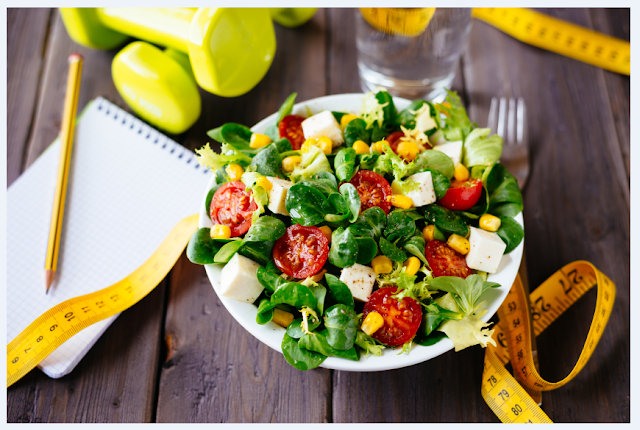Healthy Food Habits
Healthy Food Habits
One of the most important reason India doing well in fight against Covid is our food habits. It’s not in the business interest of the western world’s food industry to acknowledge this.
- we eat local
- we eat seasonal
- we eat fresh
- we cook 2/3 times in a day
- Indian food not only provides fuel and energy to body but also has lots of preventive medicinal properties in our daily food items.
- we have masala chai and not coffee
- we eat poha / Upma / paratha / idli and not useless cornflakes.
- we eat wheat / nachani / jawar / bazara/ barley/ maize ( mix roti) before multi grain became popular.
- we have sambhar / shikanji/ lassi / chaas/ kokam etc and not harmful chemical called cola drinks!
- many India foods are super foods without cleverly marketed.
- most Indian moms and grannies are nutrition specialists without any formal education/ qualification.
- time to raise a toast ( or perhaps roti ) to honor our long tradition and wisdom's of our ancestors in developing and refining these food habits!!!
- time to say big thanks to all the ladies and few gents in keeping us healthy.
- eat local / seasonal and do not fall for fad (mostly fake) diet plan.
- eat healthy and eat without guilt. Go local / go seasonal.
Great, I believe our ancestors/ Rishies (researchers) were super genius who identified what herbs 🌿 to eat as food & what for medicines, these are now being explored by westerns👌👍🏼
Human beings are a difficult lot. We do not like to be told what to eat and when to eat it. This is because we do not eat prescriptively but by taste. Taste ultimately rules everything.
We hear of the great benefits of authentic Mediterranean and Chinese food, rich in fruits vegetables and fiber and only small amount of dairy and processed (junk) food. But people in these countries eat their pasta or steamed fish and rice, because they're rich in fiber ? Hell no! They eat they fruits and noodles and stir fries because they taste good and because that's what they have always eaten.
The traditional Indian diet has, on the whole, been pretty healthy, with good amount of vegetables and natural fiber. Prosperity has ruined everything. We are now eating more refined sugar, oil, (in the form of fried foods) and junk. Even the simple thali has been transformed to include less fresh vegetables and fruit and more fried, refined cereal based snacks and sweets.
If you are exercising two hours a day or walking to work, your body can probably cope with the excesses. If you lead a sedentary lifestyle though, you may have to change your diet. Eat small amounts of food every two hours. This way it is easy to balance your intake between things that are good for you (fresh fruits, raw vegetable, juice, dry fruits, sprouts, nuts, seeds, coconut milk- based dishes) and the junk you might crave.
Feeding Our Children Right
Feeding children healthy food can be a frustrating experience. So what are concerned, even nutritionally conscious parents to do ?
First, listen to your convictions, and to your common sense. Breastfeed as much as you can and add solids at about 6 months, beginning with meshed banana and than graduating to steamed apple, meshed potatoes and cereals such as nachni or ragi.
Second, do not panic if the baby on growing up becomes a fussy eater. Picky eating habits, like many quirks of childhood, usually don't last long. Understanding the origins of finicky behavior may be helpful. It may be that the children are simply not hungry at meal times. This usually gets ironed out when you start cutting down their snacking. Or they may associate mealtime with parental pressure .As child cannot be forced to eat. otherwise it results in resistance. Food specially for child cannot be forced. Keep your prospective. It's lot more important in the long run for your child to regard mealtimes as potentially pleasant then to eat more chapatis.
On the other hand, giving in too much too fussy children by readily offering alternatives may avert an imminent battle, but it won't broaden their food acceptance.
Perhaps the best route for parents is to provide a wide variety of wholesome foods and no encourage, but not force, the children to try them. Just because your daughter says she doesn't like peas today doesn't mean that she won't like them next week, next month or next year or in some other dishes. It is found that our little boy lapping up leftover spinach soup one day. It may have been that he was genuinely hungry or may be the soft leaves appealed to him more than a mashed up vegetables. Parents have to develop patience fortitude and creativity.
Thirdly as an adult you must not reinforce bad eating habits.It should not happen that you have dinner and kids are having pizza. Let us not be unfair to our children. We owe them a healthy start to make their lives richer, more aware and more vital than our own. Prevent children having chocolate, sweets and soft drinks. Nimboo pani is a good option.
Playing Chef
Let them peel their own cucumber, roll their own roti, its their own achievement.
Playing artist
Presentation influences children's receptivity to certain foods. Nicely cut (preferably raw ) vegetables , lot of fresh fruit, jellies made from fresh juice, animal shaped breads, all make for good, clean,healthy fun food.
Playing Politician
For those foods that remain stubbornly on your child's "yucky' list, try sneaking them into popular dishes. Add finely chopped vegetables to the tomato sauce in pizzas or blend a little bean curd or paneer into cheese spreads. The more you cook for kids, the more you'll come up with your own little nutrient- packed "secret weapon".
Playing mummy
But the best ingredient of all may be your own sense of adventure mixed with liberal dose of tolerance and humor. No matter how guilt ridden we may be, remember children are great imitators. They may not eat what you do initially, but they will soon learn.
If your child see you tucking into unhealthy, soft white bread all day long, why should he or she be expected to eat brown ?. However if they see preparing and eating everyday meals, and enjoying the experience, rather than rushing through the whole thing like a dreaded chore, don't be surprised to find future healthy gourmets in your midst.
https://madhuchhandacdmo.blogspot.com/2020/12/healthy-food-habits.html



.jpeg)
Comments
Post a Comment